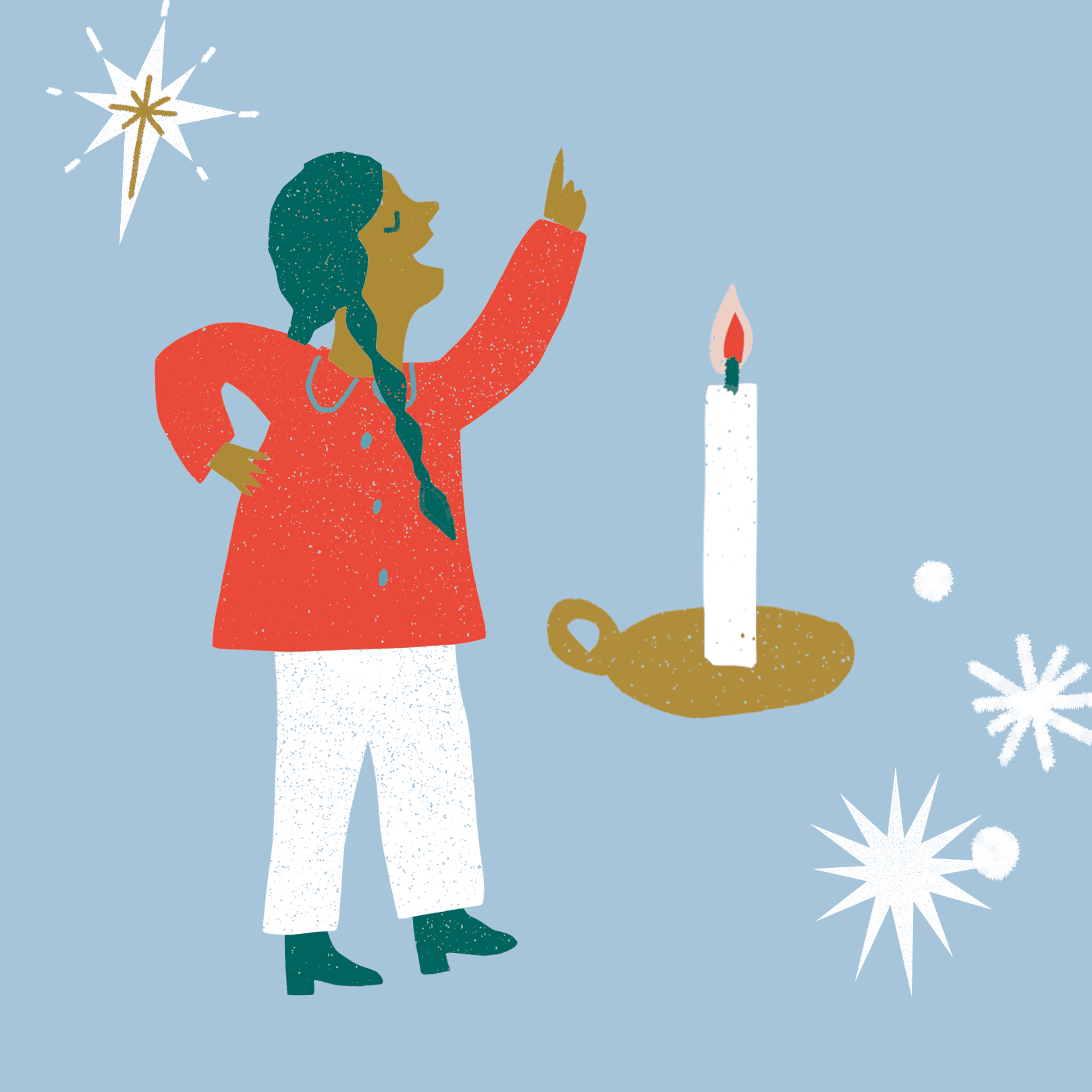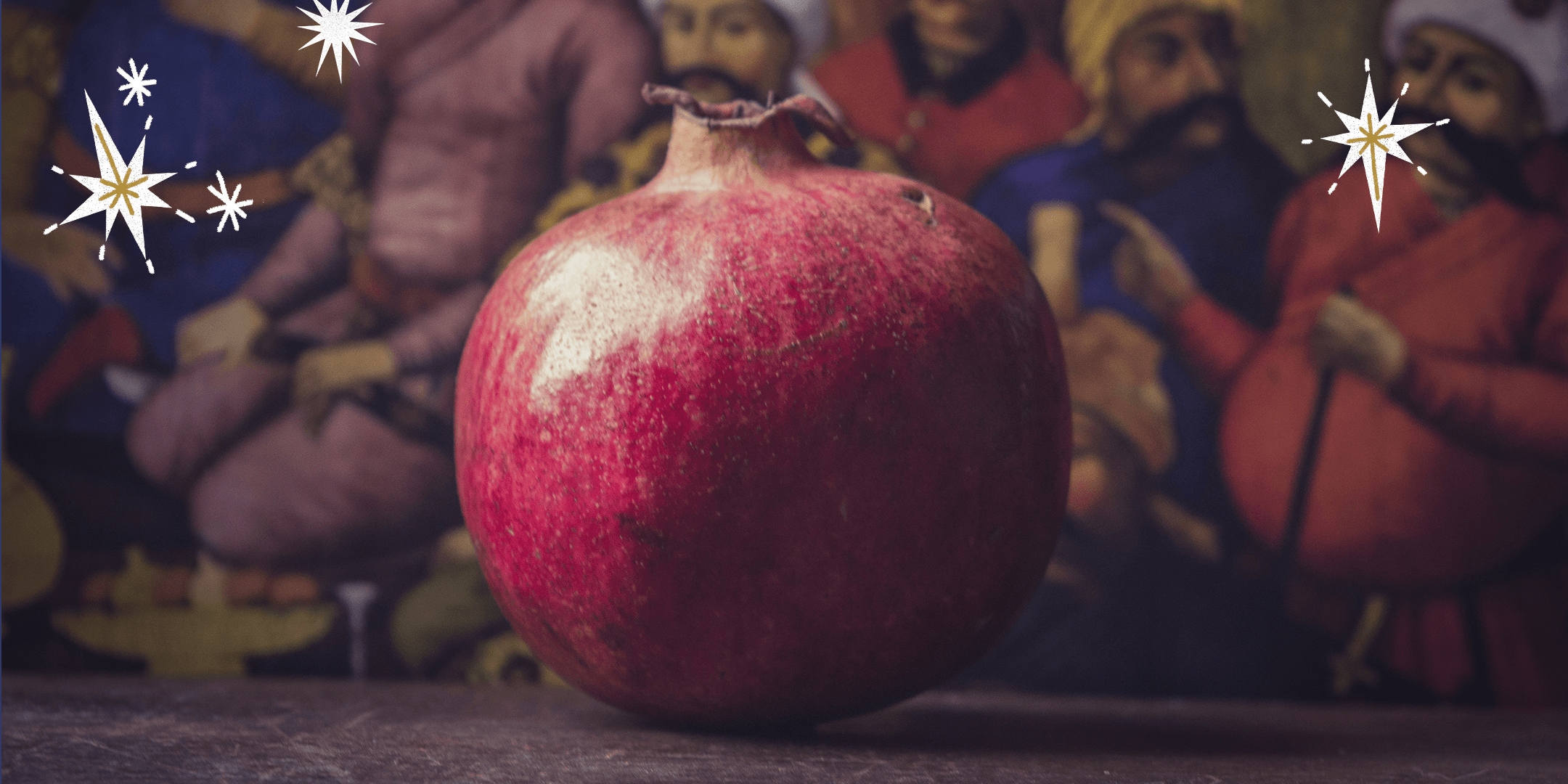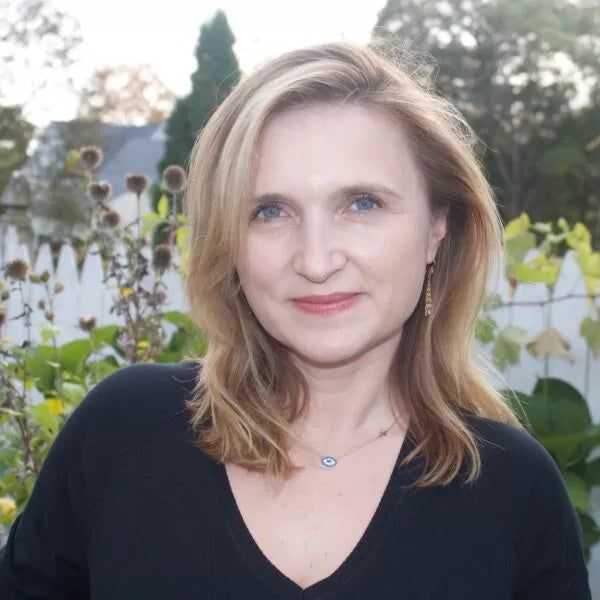
Everyday Magic
Let There Be Light...and Pomegranates on Yalda
Persians all over the world spend the evening of the winter solstice telling tales of light triumphing over darkness. Everyday Magic columnist Eleni N. Gage explores the power behind the holiday's symbolism.
- Written By
- Eleni N. Gage
It all started with a pomegranate. A decade or so ago, I was visiting my parents in Worcester, Massachusetts, and took my toddler daughter to see the decorated Christmas trees at the local botanical gardens. To get to the greenhouse, we had to walk through a hallway lined with tables, each one dedicated to a festival of lights sacred to a specific culture. One held divyas, the clay oil lamps Hindus decorate and set out at Diwali; another bore a menorah to mark the eight nights of Hanukkah. A third featured a Santa Lucia wreath, the ring of green branches holding taper candles worn by Swedish girls to emulate the saint, who is said to have delivered care packages to early Christians in hiding while wearing a crown of candles to light her way.
Each display was lovely, and inspirational. But I was immediately drawn to a table laden with a book, candles, and fruits and flowers in red and orange colors reminiscent of flames. Front and center were the pomegranates. Some people have a signature scent. The pomegranate is my signature fruit. I’ve loved it since I was a little kid and we’d go out into the frigid Massachusetts night on New Year’s Eve and smash one on the doorstep so that its seeds would scatter, inviting prosperity into our home, according to Greek custom. Pink, plum, and gold on the outside, ruby-red on the inside, pomegranates are a color palette unto themselves, they’re a whole mood. Bursting with seeds, they symbolize abundance in many cultures. But on this table, they had a specific job to do.

The card next to the pomegranates explained that this table was set for the Persian holiday Shab-e Yalda, which takes place on December 21st, the winter solstice, and the longest, darkest, night of the year. An observance evolved from the days when ancient Persians honored the sun-god Mithra, Shab-e Yalda celebrates the dawn after that vastest of nights. Today, Persians all over the world spend the evening of the 21st gathering together, reciting poetry, feasting, and telling tales of light triumphing over darkness and good over evil. As for the pomegranate, one account I read explains that the exterior of the fruit represents the rosy-fingered dawn, and the interior “the glow of life.” Adding to my enjoyment of the display was the fact that, back in New York, I knew, and adored, a person named Yalda, a friend of a friend who truly is a light in the darkness.
It turned out her parents named her after the holiday because “they liked how it sounded, that it was derived from Zoroastrian culture, and the premise of light prevailing over darkness is a pretty great thing,” she said, when I asked her about the holiday recently. She waxed nostalgic about her aunt’s pomegranate stew, and celebrating with her first-generation Iranian immigrant family as a child, explaining, “Shab-e Yalda is about coming together, reciting poetry and telling stories, spending time with your loved ones.” Now, come December 21, she’ll have friends over and cook Persian food, or go to Sofreh, her favorite Persian restaurant in the city. “Sometimes, because I’m a little bit woo-woo, I’ll go do a yoga class or do a sound bath, something meditative or contemplative, that night,” she says. “Other times I will use it as an opportunity to go celebrate the darkness and the fact that the days are going to be longer from now on; it’s that push and pull of dark and light.”
This year, the holiday is on a weeknight, but after work, Yalda plans to go to a yoga class— “some of the studios I like now offer solstice practices,” she says. “And I will, for sure, eat pomegranates!” She points out that the holiday’s message is more needed now than ever.
"This year, it feels even more important to recognize light prevailing over darkness, and the reality that so many young girls and women are putting their lives on the line for freedom," she says.
“It’s especially poignant when you see other girls named Yalda who have given their lives to this movement. I’m heartbroken, and yet, full of hope that the people of Iran will prevail, because they are the light and the future of that beautiful country.”
Personally, I’ve thought of the holiday on every December 21st since I first read the info card, but I’ve never celebrated it; I’m not Persian, after all, and this season is already full of Christmas pageants and holiday get-togethers, and end-of-the-semester publishing parties. But this year, I’m adding it in to the midst of all the hoopla. I plan to take my kids to Lightscape, the light show at the Brooklyn Botanical Gardens, to spend the longest night of the year looking at, and for, light. I remember piling into my parents’ car as a kid and driving around the neighborhoods we’d heard had the best display of Christmas lights. This the same idea—a search for light and sound and joy in the darkness. But there’s more to the observance than seeking light. It seems to me that the other aspect of Shab-e Yalda is leaning into the darkness, making the most of those endless-seeming hours. I want to remind myself, and my kids, that the dazzling display is only possible because of the long hours of darkness that make wandering illuminated mazes a viable activity. That out of the darkest times, light slowly arises.
One of the hardest things about parenting for me is letting my children sit in the darkness for a minute, experience the uncomfortable moments in life that lead to growth, without jumping in and turning the lights on for them.
Shab-e Yalda teaches us that we have to find ways to make the most out of the darkness, while also seeking light. It’s a reminder of how practicing optimism can bring joy on its own, of how important it is to have faith that, after the seemingly eternal night, the days will start to get longer, one after the other bringing in a little bit more sunshine.
There’s one more Shab-e Yalda message I want to share with my kids: That there’s no one I’d rather spend the longest night of the year with than them. And after we’re in from the dark and the cold, and they’re warm in bed, maybe I’ll turn off the lights, sit by our Christmas tree, and pour myself a glass of prosecco and drop a few pomegranate seeds in it, to celebrate the glow of life.
Eleni N. Gage

Journalist, folklorist, and mother of Greekaraguans, Eleni N. Gage is the author of two novels, a travel memoir, and the gift book Lucky in Love: Traditions, Customs, & Rituals to Personalize Your Wedding.